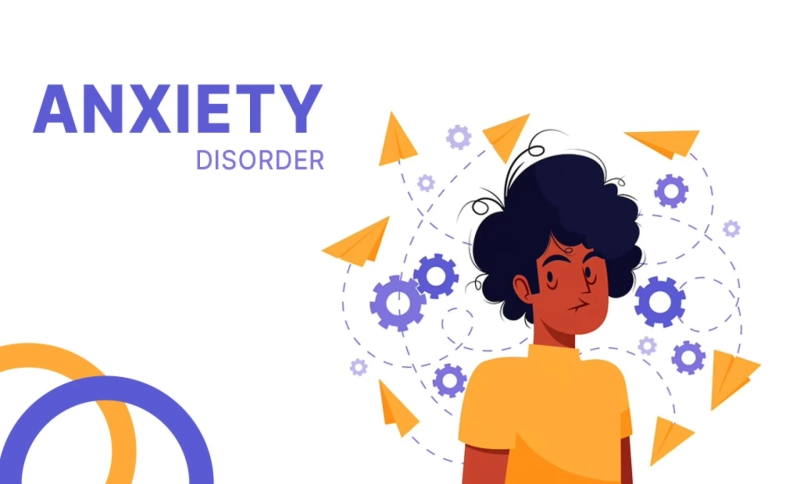Introduction:
Anxiety disorders are prevalent mental health conditions that can significantly impact an individual's well-being. Living with anxiety can be overwhelming, affecting various aspects of life, including relationships, work, and overall quality of life. However, anxiety disorder counseling offers a powerful avenue for individuals to empower their resilience and achieve mental well-being. This article explores the importance of anxiety disorder counseling, the therapeutic approaches involved, and the benefits it brings in fostering resilience and promoting mental health.
Understanding Anxiety Disorders:
Anxiety disorders encompass a range of conditions characterized by excessive worry, fear, and heightened stress responses. Generalized Anxiety Disorder (GAD), Panic Disorder, Social Anxiety Disorder, and specific phobias are among the most common anxiety disorders. These conditions can manifest as physical symptoms, such as rapid heartbeat, shortness of breath, and intrusive thoughts, leading to distress and impairment in daily functioning.
The Role of Anxiety Disorder Counseling:
Anxiety disorder counseling plays a crucial role in supporting individuals struggling with anxiety. By addressing the underlying causes and symptoms of anxiety, counseling provides individuals with the tools and support they need to navigate their anxiety effectively and build a foundation for lasting mental well-being. Here are the key elements of anxiety disorder counseling that contribute to empowering resilience and fostering mental health:
Creating a Safe and Non-judgmental Space: Anxiety disorder counseling provides a safe and non-judgmental environment where individuals can express their fears, concerns, and experiences freely. Counselors create a space that encourages openness, trust, and confidentiality, allowing individuals to explore their emotions, thoughts, and triggers associated with anxiety without fear of judgment or criticism.
Comprehensive Assessment and Individualized Treatment: Anxiety disorder counseling begins with a comprehensive assessment to understand each individual's unique experience of anxiety. This assessment helps counselors tailor the treatment approach to address specific symptoms, triggers, and personal goals. By focusing on the individual's needs, counseling ensures a personalized and effective treatment plan.
Psychoeducation and Normalization: Counselors provide psychoeducation about anxiety disorders, helping individuals understand the nature of their condition, the common symptoms experienced, and the underlying factors that contribute to anxiety. By normalizing the experience of anxiety, individuals gain a sense of validation and understanding, reducing self-blame and stigma.
Cognitive-Behavioral Therapy (CBT): Cognitive-Behavioral Therapy (CBT) is a widely used and evidence-based approach in anxiety disorder counseling. CBT focuses on identifying and modifying negative thought patterns and behaviors that contribute to anxiety. Through CBT, individuals learn to challenge distorted thinking, reframe irrational beliefs, and develop healthier coping strategies to manage anxiety effectively.
Exposure Therapy: Exposure therapy is particularly effective for individuals with specific phobias and panic disorders. This approach involves gradually and systematically exposing individuals to feared situations or objects in a safe and controlled environment. By confronting their fears, individuals learn that anxiety decreases over time, leading to increased resilience and reduced avoidance behaviors.
Mindfulness and Relaxation Techniques: Anxiety disorder counseling often incorporates mindfulness and relaxation techniques to help individuals develop present-moment awareness and relaxation skills. Mindfulness practices promote acceptance of anxious thoughts and emotions without judgment, reducing the impact of anxiety on overall well-being. Relaxation techniques, such as deep breathing exercises, progressive muscle relaxation, and guided imagery, help individuals manage physiological symptoms of anxiety and promote a sense of calm.
Coping Skills Development: Counseling empowers individuals with practical coping skills to manage anxiety symptoms in their daily lives. These skills may include stress management techniques, problem-solving strategies, assertiveness training, and effective communication skills. By acquiring and practicing these skills, individuals build resilience and enhance their ability to cope with anxiety-provoking situations.
Emotional Processing and Trauma Healing: For individuals with anxiety disorders rooted in past traumas or unresolved emotional issues, counseling provides a space to process and heal these experiences. Through the support of a counselor, individuals can explore and understand the root causes of their anxiety, allowing for emotional growth, resilience, and the development of healthy coping mechanisms.
Relapse Prevention and Long-term Support: Anxiety disorder counseling focuses not only on symptom relief but also on preventing relapse and providing long-term support. Counselors work with individuals to develop personalized relapse prevention plans, identify potential triggers, and provide ongoing support and guidance as individuals continue their journey toward mental well-being.
Holistic Approaches: Anxiety disorder counseling may integrate holistic approaches that complement traditional therapy. These approaches may include lifestyle modifications, such as regular exercise, adequate sleep, healthy nutrition, and stress reduction techniques. Holistic practices can enhance overall well-being and support the individual's resilience in managing anxiety.
Conclusion:
Anxiety disorder counseling is a powerful resource for individuals seeking to empower their resilience and achieve mental well-being. Through a combination of evidence-based approaches, personalized treatment plans, and compassionate support, counseling helps individuals understand and manage their anxiety symptoms effectively. By creating a safe and non-judgmental space, providing psychoeducation, utilizing therapeutic techniques such as CBT and exposure therapy, developing coping skills, and integrating holistic approaches, counseling empowers individuals to navigate their anxiety and build resilience for long-term mental well-being. If you or someone you know is struggling with anxiety, seeking professional counseling can be a transformative step towards finding relief, fostering resilience, and leading a more fulfilling and anxiety-free life.



